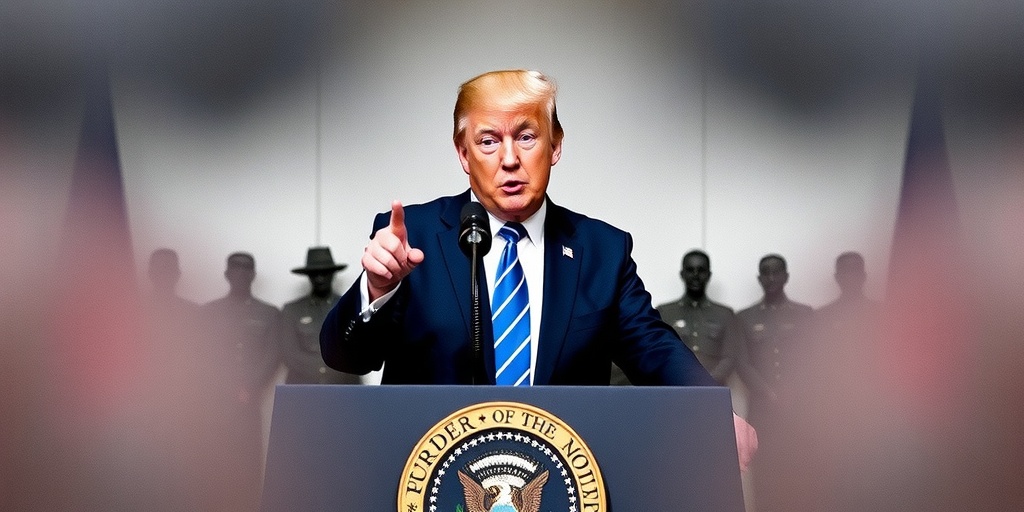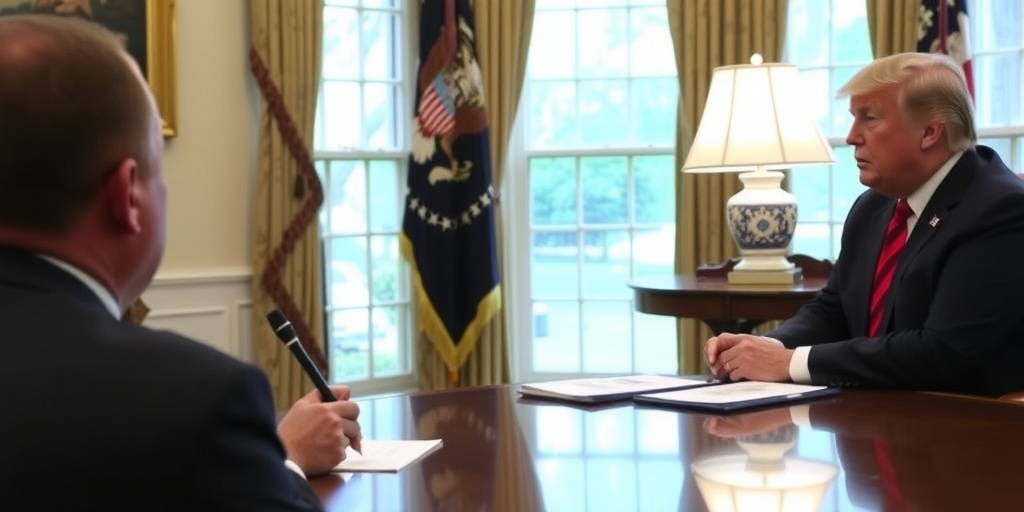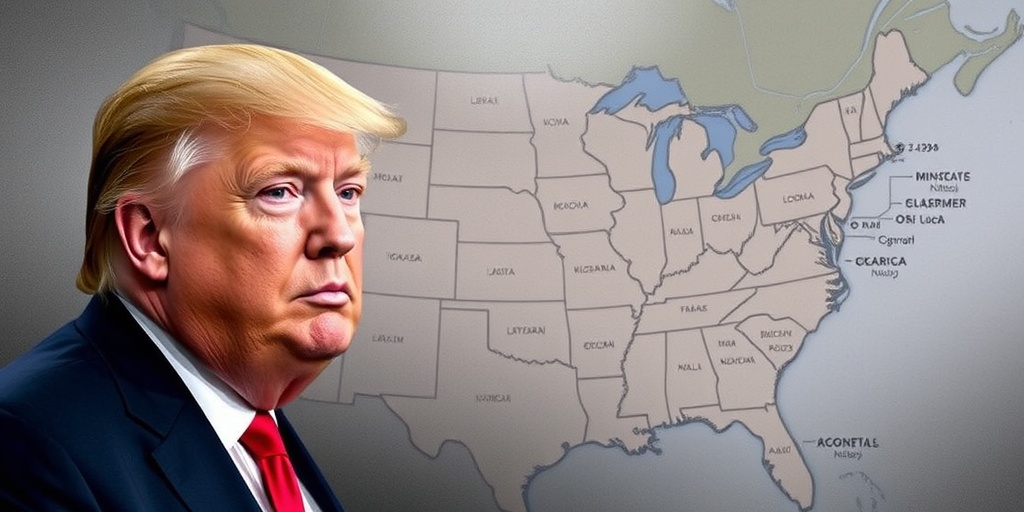Now Reading: Impact of Birthright Citizenship Change on Visa Holders
-
01
Impact of Birthright Citizenship Change on Visa Holders
Impact of Birthright Citizenship Change on Visa Holders

Trump’s Executive Order on Birthright Citizenship Sparks Controversy
In a significant development concerning immigration policy, President Donald Trump has issued an executive order that seeks to redefine the concept of birthright citizenship in the United States. This new order stipulates that infants born to temporary residents—including individuals on work or student visas—will not automatically be granted U.S. citizenship if neither parent is a permanent resident. This marks a substantial departure from long-established legal precedents enshrined in the Constitution for over 150 years.
Traditionally, any child born on U.S. soil has been recognized as a citizen under the 14th Amendment, which asserts that "all persons born or naturalized in the United States, and subject to the jurisdiction thereof, are citizens of the United States." However, the president’s latest order challenges this understanding by indicating that citizenship will be denied to children of parents who are not citizens or lawful permanent residents. This means that children born to individuals in the U.S. on a temporary basis, such as foreign students or temporary workers, may be subjected to a new bureaucratic process to confirm their citizenship status.
According to reports from Trump’s aides, the executive order was initially framed as targeting children of undocumented immigrants. However, the language of the order extends far beyond this, raising concerns among legal experts and immigration advocates. David Leopold, an immigration attorney, characterized the action as "a shocking attack on people in this country who are here lawfully." He emphasized that many temporary residents contribute significantly to the U.S. economy, particularly in fields that require advanced expertise.
The executive order, titled “Protecting the Meaning and Value of American Citizenship,” forms part of a broader series of actions taken by Trump to tighten immigration policies. While Trump has maintained that he supports legal immigration, his recent measures appear to contradict that stance by significantly limiting avenues for legal entry into the U.S. Many of his advisors, notably Stephen Miller, have expressed support for a stringent approach to immigration and citizenship rights, advocating against allowing immigrants to establish residency through childbirth in the U.S., often referred to as "anchor babies."
In addition to the birthright citizenship order, other recent actions taken by Trump include imposing indefinite bans on asylum for individuals attempting to enter through the southern border, canceling legal pathways established by the previous administration, and declaring an “invasion” of immigrants. These measures collectively reflect the administration’s intent to reduce immigration levels significantly.
The executive order also outlines how the federal government plans to enforce these new rules. As it stands, the process of documenting citizenship starts when a child is born in the U.S. with the issuance of a birth certificate by state authorities. This birth certificate currently serves as proof of citizenship, with no requirement for information regarding the parents’ immigration status. However, Trump’s order indicates that within 30 days, all federal agencies must verify the immigration status of parents before issuing documents confirming U.S. citizenship.
The practical implementation of this order is fraught with uncertainty and complications. It remains unclear how state agencies would be required to collect and report parental immigration status on birth certificates. Furthermore, the process of verifying citizenship for passport applications could become burdensome, particularly in cases of complicated family situations or missing documentation.
Legal experts are questioning the constitutionality of the executive order, predicting it will face numerous legal challenges. The American Civil Liberties Union (ACLU) wasted no time in filing a lawsuit to block the order, citing concerns that it targets lawful residents and could instigate discrimination. On Tuesday, attorneys general from 22 states and two cities also filed suit against the Trump administration, seeking to suspend the order, indicating a potential lengthy legal battle that may ultimately lead to a ruling by the Supreme Court.
The historical significance of birthright citizenship cannot be overstated. Established after the Civil War, it was intended to ensure that all persons born in the U.S., regardless of their parents’ status, would be granted citizenship. Opponents of the order, including ACLU’s Anthony Romero, argue that removing such fundamental rights would lead to systemic discrimination and undermine the very fabric of American identity.
While Trump argues that his administration is entitled to reinterpret the 14th Amendment, legal challenges suggest this interpretation goes against over a century of established legal precedent. Activists and legal scholars continue to assert that the order represents a fundamental shift in understanding citizenship and rights within the United States.
As the administration pushes forward with its immigration agenda, it has also signaled further restrictions on legal immigration pathways and proposed new travel bans targeting certain countries, exacerbating fears about the future of immigration policy in America. The unfolding developments raise critical questions about the balance between national security and the foundational values of equality and citizenship that the United States has upheld for generations.
Stay Informed With the Latest & Most Important News
Previous Post
Next Post
Previous Post
Next Post
-
 01New technology breakthrough has everyone talking right now
01New technology breakthrough has everyone talking right now -
 02Unbelievable life hack everyone needs to try today
02Unbelievable life hack everyone needs to try today -
 03Fascinating discovery found buried deep beneath the ocean
03Fascinating discovery found buried deep beneath the ocean -
 04Man invents genius device that solves everyday problems
04Man invents genius device that solves everyday problems -
 05Shocking discovery that changes what we know forever
05Shocking discovery that changes what we know forever -
 06Internet goes wild over celebrity’s unexpected fashion choice
06Internet goes wild over celebrity’s unexpected fashion choice -
 07Rare animal sighting stuns scientists and wildlife lovers
07Rare animal sighting stuns scientists and wildlife lovers





















